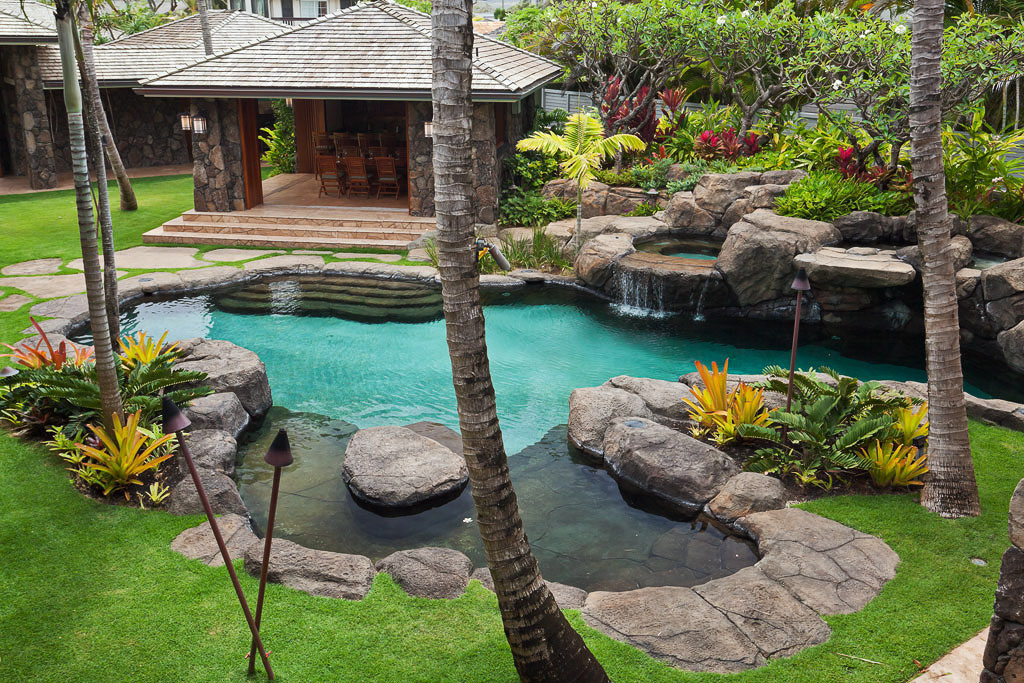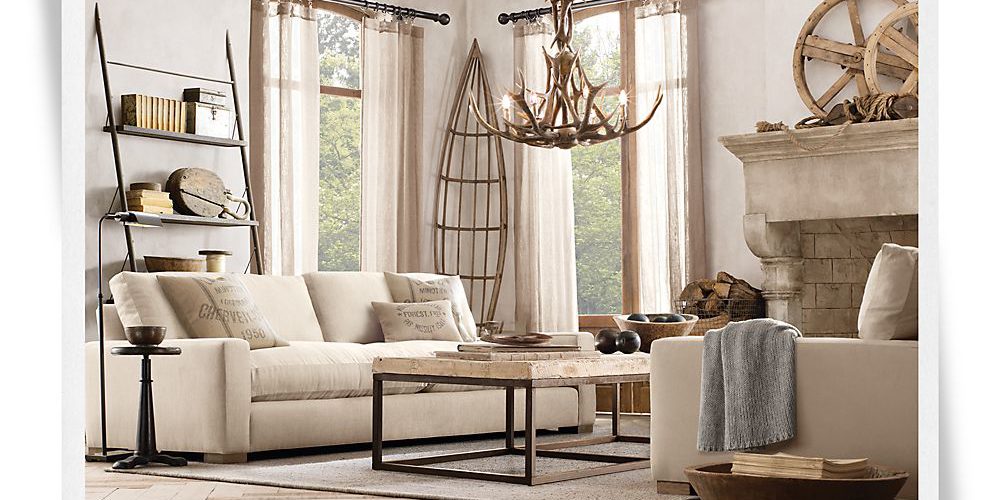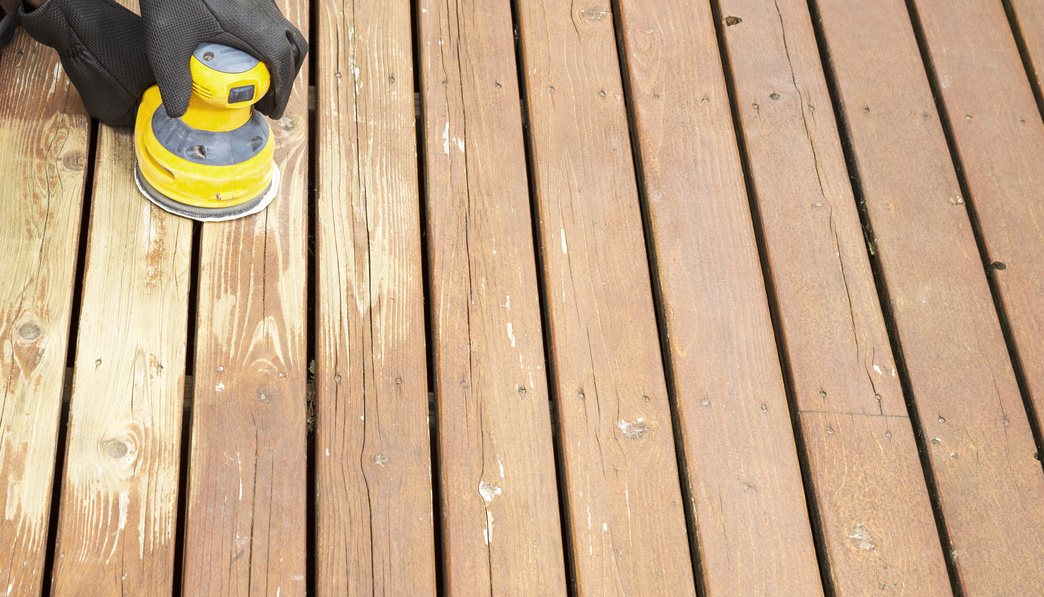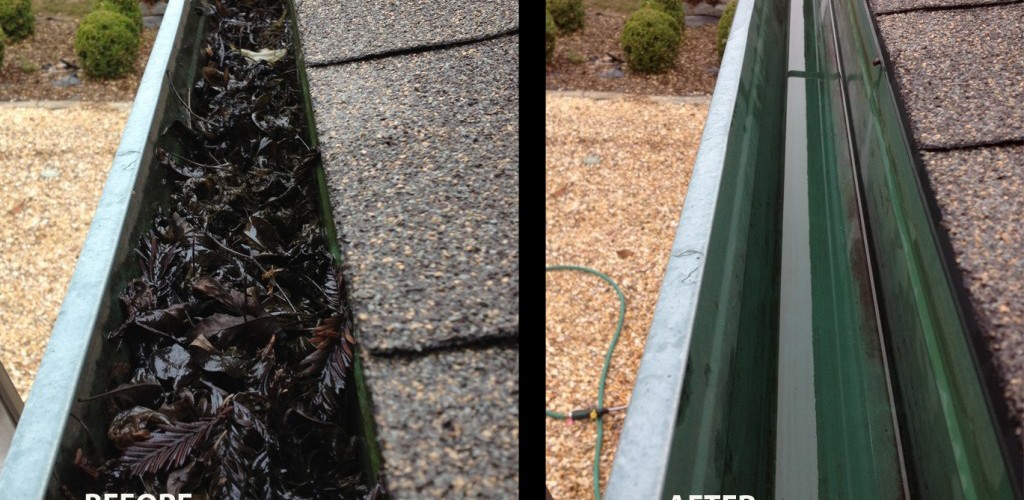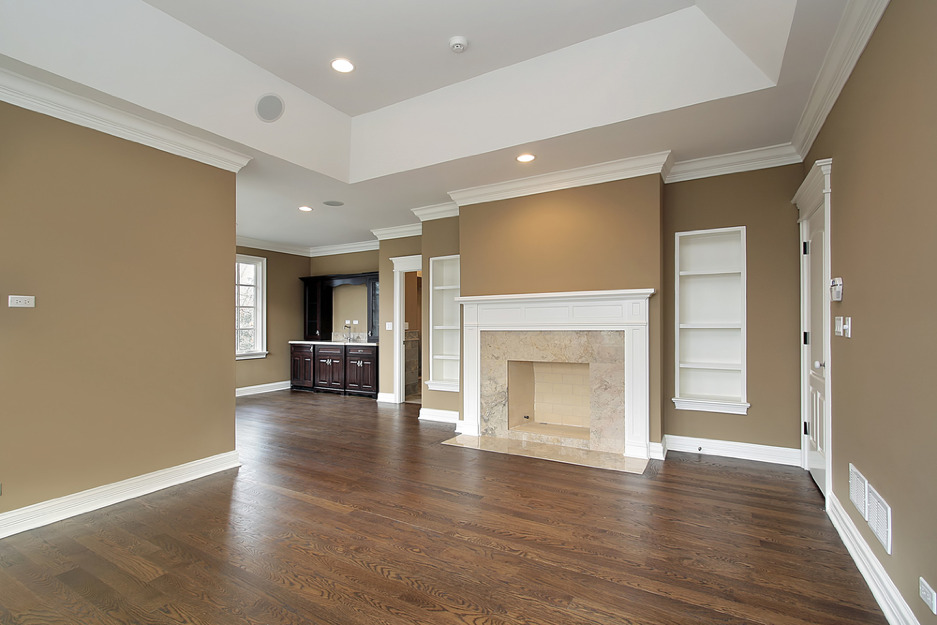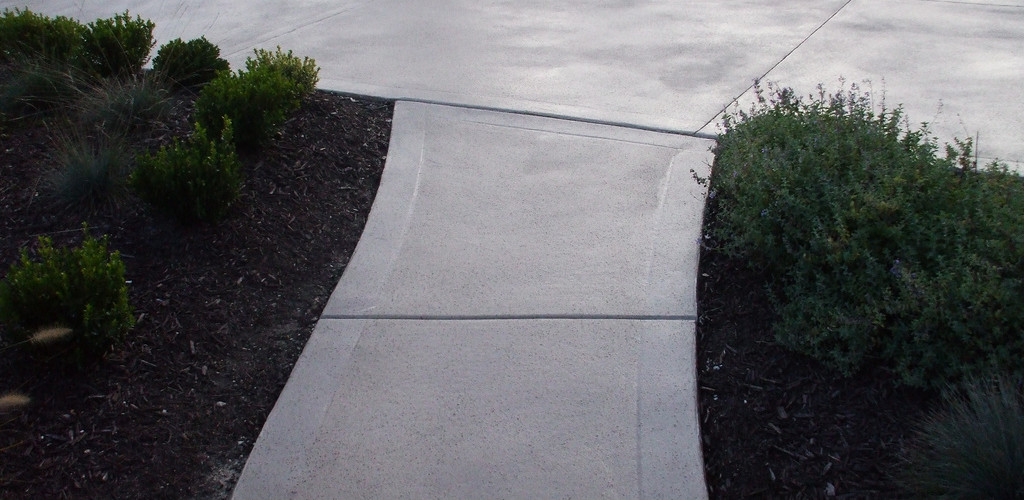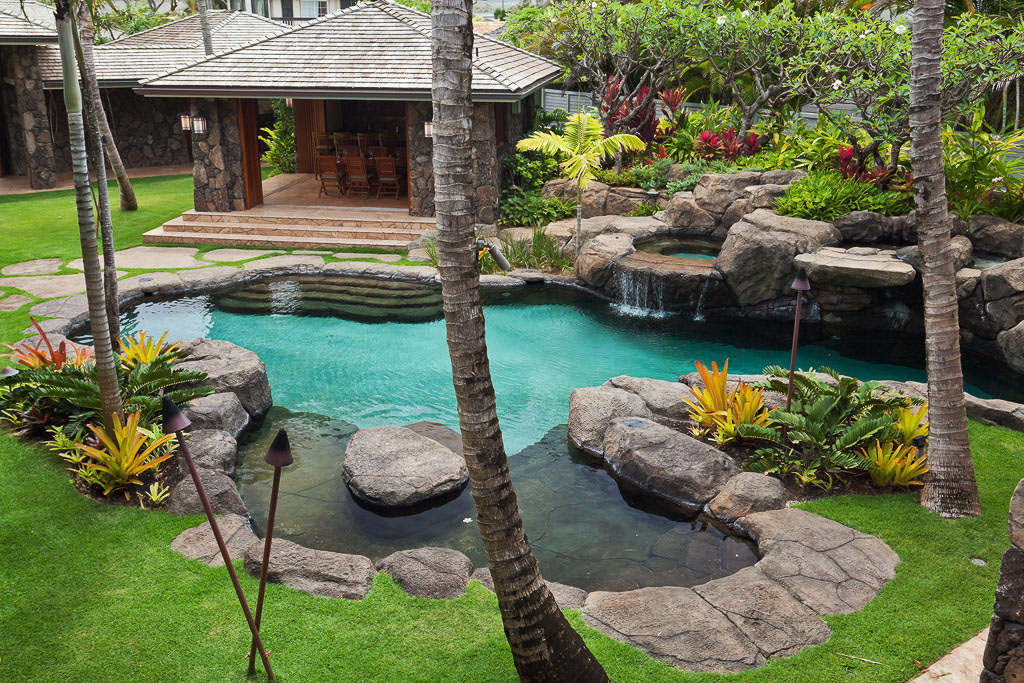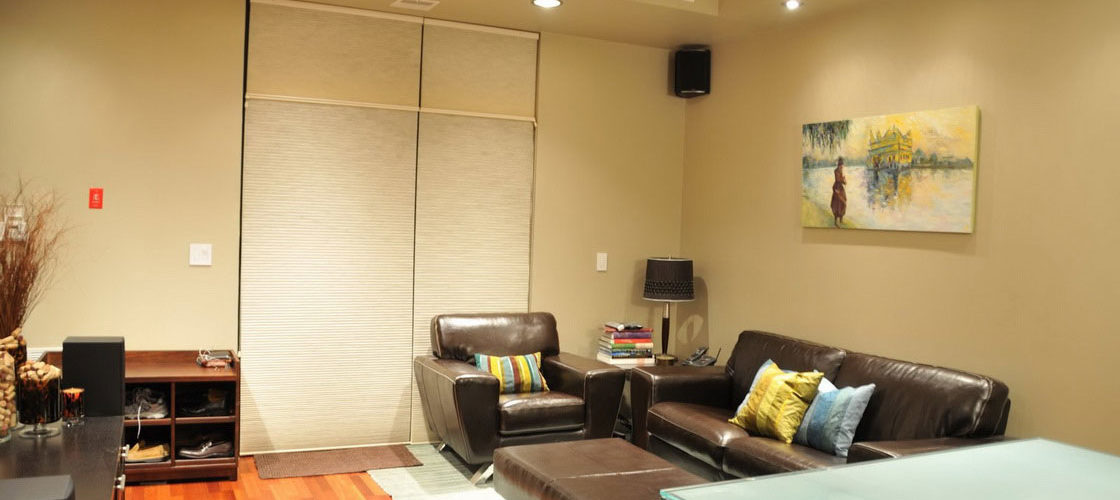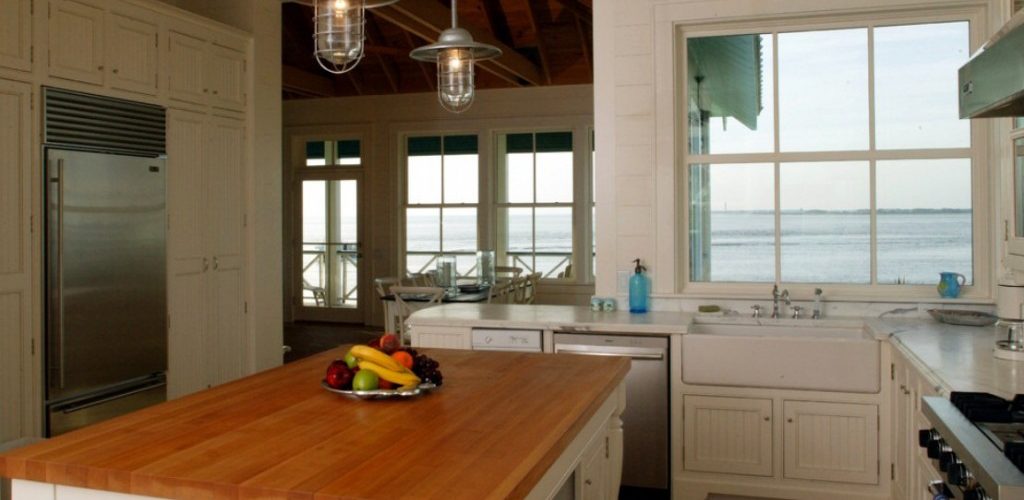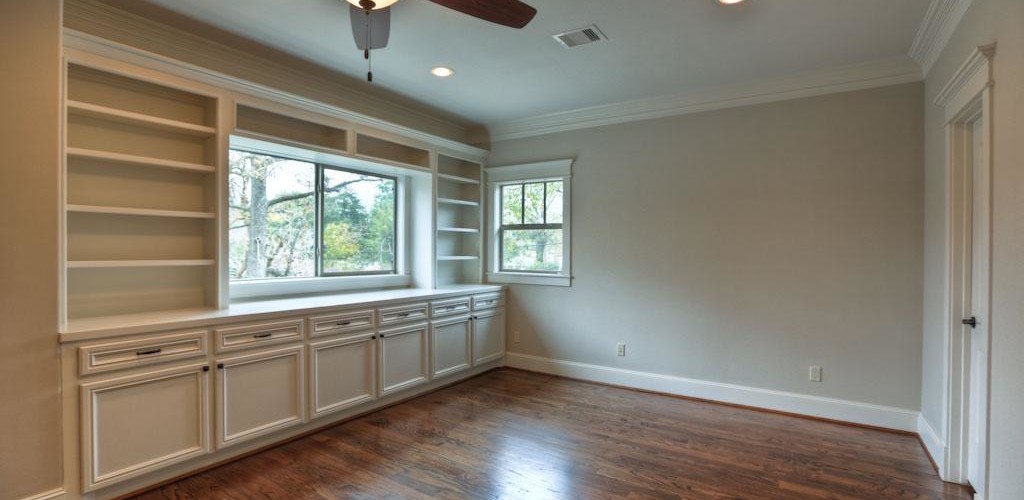So many factors play into choosing a kitchen floor: How much do you cook? Is it an open floor plan? What’s the most durable?
We’ve taken out the guesswork and chosen four flooring types that make the most sense for kitchens, and we explain why they are ideal.
Hardwood Flooring is Ideal When:
- You don’t want your kitchen to look dated over time.
- You have an open floor plan.
- You seek durability.
Hardwood flooring, with its unmatched warmth and visual appeal, is a great choice if you want to create a look that never really goes out of style, giving you a good return on investment if you ever sell your home.
Also, if you have an open floor plan, hardwood works well in both kitchens and living areas. It creates a warm and unified look.
Hardwood is also:
- Highly durable. It can withstand decades of use.
- Low-maintenance.
- Moisture-resistant if you choose a prefinished type.
Hardwood flooring is made in two ways: solid wood strips or engineered wood planks.
Engineered wood is the better choice for kitchens. It has a veneer of real wood backed by layers of less expensive plywood. This construction provides dimensional stability that makes the flooring less susceptible to movement caused by changes in humidity and temperature — common in kitchens.
Cost: $3 to $19 per sq. ft.
Installation: $7 to $28 per sq. ft., depending on the complexity of the job
Vinyl Flooring is Ideal When:
- You cook a lot.
- You want the easiest-to-maintain floor.
- You are on a tight budget.
Sheet vinyl belongs to a group of flooring products called resilient flooring, which is the softest flooring option. If you cook a lot, this cushiness makes it easier on your feet while easing muscle fatigue.
Also, sheet vinyl is much more forgiving if you (or someone in your family) is a bit of klutz who tends to drop things. You’ll have less breakage.
Plus, sheet vinyl flooring is a snap to clean up; it’s completely waterproof and stain-proof.
However, depending on the size and layout of your kitchen, you may have seams. Standard width for vinyl flooring is 12 feet. If your kitchen is wider than that, you’ll definitely have seams, which can let moisture into the subfloor and trap dirt if they aren’t tightly bonded.
On the upside, sheet vinyl requires no ongoing maintenance beyond sweeping and mopping. If the softness of vinyl flooring appeals to you most, you might opt for cushioned vinyl flooring, which is backed with a layer of foam (standard sheet vinyl uses felt backing).
Sounds good, but that extra cushiness makes it hard to create seams that stay tightly bonded over time. You may end up with seams that come apart, letting in moisture and trapping dirt.
Sheet vinyl comes in many colors and patterns. Thicker vinyl can feature a textured surface, and some types do an excellent job of mimicking the appearance of ceramic tile and real stone. Textured vinyl is a wise choice because it provides traction. Vinyl can be dangerously slippery when wet.
Vinyl flooring also has a wear layer that helps resist scratches and scuff marks. But it does eventually wear off. The best brands offer guarantees on the wear layer of 10 to15 years, and good quality vinyl should last 20 years.
Cost: $3 to $15 per sq. ft.
Installation: $3 to $11 per sq. ft.
Don’t confuse vinyl with linoleum. While linoleum is a similar product, it is not as durable, nor as soft. Its upside is its eco-friendliness.
Porcelain Tile is Ideal When:
- You want the toughest flooring.
- You like the look of stone.
- You want low maintenance.
Porcelain flooring tile, a version of common ceramic tile, is the durability champ. It’s fired at high temperatures that produce an extremely hard, durable, stain-resistant tile that is impervious to moisture.
In fact, it’s so tough it can be used outdoors in virtually any climate. Like common ceramic tile, porcelain tile comes either unglazed or glazed. The unglazed versions take on the color of their clay mixture, so they have naturally earthy tones.
Glazed tiles have a glass-like coating that can be made in virtually any color, and can mimic the look and texture of real stone at a much lower cost than stone.
Make sure you choose porcelain tiles certified as slip-resistant by the Americans with Disabilities Act — the designation should be visible on product literature or packing materials.
Cost: $2 to $30 per sq. ft.
Installation: $7 to $18 per sq. ft.
Cork Flooring is Ideal When:
- You want an eco-friendly choice.
- You want a softer floor than wood or tile.
- You want slip-resistance.
Cork is made from tree bark that’s harvested every eight to 10 years; it’s a sustainable material, meaning the bark grows back and can be harvested repeatedly.
Countries that produce cork are careful to regulate harvesting to ensure future supplies.
Cork has a unique cellular structure that’s waterproof and compressible, which makes it a comfortable, moisture-resistant choice. It comes in 12-inch-by-12-inch tiles and 1-foot-by-3-foot planks, each with a unique grain pattern of swirls and speckles.
The surface is naturally textured, which makes it slip-resistant.
But unlike other flooring options mentioned, cork floors need to be resealed every three to four years to help guard against scratches and prevent moisture from entering the seams between tiles.
Both natural wax and polyurethane are good sealers for cork. Choose water-based polyurethane that’s non-toxic or has low volatile organic compound content to keep it green.
Cost: $4 to $9 per sq. ft
Installation: $5 to $18 per sq. ft.
